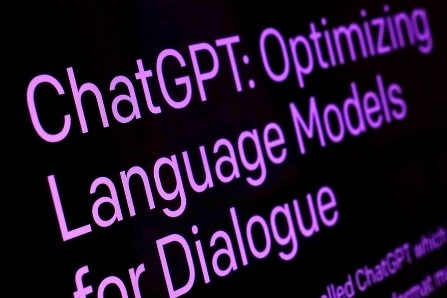IT CAN BE USED FOR SOCIETAL CONTROL, MISINFORMATION, DISCRIMINATION
Remember travel agencies? Yes, a few still exist, but what was common is now rare — death by internet. Good travel agencies were helpful and provided important services, but what they did so well was costly. Airlines and cruise ship companies learned how to save much of the booking costs through the use of advanced technology while shifting much of the remaining cost to the consumer. And most consumers were willing to take on some of the functions of travel agents once the consumers were given easy-to-use tools to compare prices and book trips in exchange for lower fares.
The internet changed almost everything. Now, an equally big, or perhaps even larger, revolution is again poised to upend the world. As I write this, an autocomplete program in my word processor guesses at what words I am going to use next. The program is correct enough of the time to reduce composition time. But rather than composing 80% or so of the word sequence, assume that I could just tell the computer the topic I wished to write about and what the word limit would be. A large language model that could scan enormous quantities of text from many different sources would be able to compose original, grammatically correct and coherent original content.
This past November, a company called Open AI released a product to the public called ChatGPT, which seemingly could write original content on almost any topic in clear, understandable English. In less than three months, millions have downloaded the program, and the company that developed it is overwhelmed. ChatGPT is merely the first of the broadly useful AI programs. Most of the Big Tech companies are feverishly working on their own or related versions, which they plan to roll out over the coming months.
What happened to the travel agents and newspapers as a result of the internet will seem like a blip as the education, legal, medical, news, and many other establishments’ structures are destroyed and then rebuilt in different ways as a result of AI. Think of the advantages of using ChatGPT-like programs to diagnose medical problems. No one physician or even groups of doctors, no matter how talented and capable of keeping up with all the medical literature and studies, can review almost all that has been published that is relevant to a specific patient’s condition and symptoms. In a matter of seconds, ChatGPT not only can give a much higher probability of what might be wrong, but also describe what are likely to be the most effective treatments. In essence, all physicians, wherever they might be, will have more relevant knowledge than even the best physicians do today.
When we think about great lawyers, Perry Mason sorts come to mind with great courtroom presentations. But what most lawyers spend the bulk of their time on are rather humdrum but important activities such as drawing up appropriate contracts for specific situations. Few legal situations are unique. ChatGPT-like programs have the capability to find the best analogies to any legal situation, then write up most of the appropriate contracts, agreements, and relevant accompanying documents in a matter of minutes. Many lawyers will lose their jobs as a result, but legal costs for individuals and organizations will fall.
The educational establishment — from primary grades through college — has become more and more bloated with little or no improvement in student knowledge and skills. Many schools, including top-rated Ivy League schools, now have more largely make-work administrators than students or teachers. It is well known that students learn at different rates and in many different ways. The new AI programs will have the ability to provide customized instruction to students for each different topic, enabling each of them to move along as fast as their abilities will allow, with a fraction of the overhead.
Despite its obvious utility and advantages, there are major flaws with ChatGPT that it or its competitors need to overcome. ChatGPT is not good at math — yet. At the moment, this is not a major problem, since there are many excellent math programs available to solve everything that most people need.
Far more troubling is the bias within ChatGPT. The information scientist David Rozado published the results of a large study on Feb. 2 that tested the Open AI content moderation system, which found that it treats “several demographics markedly unequally.” For instance, negative comments about Blacks, gays, women and Democratic voters were treated as hateful, while the same comments about Whites, straight people, men and Republican voters were treated as not hateful.
Mr. Rozado notes: “AI systems that are more lenient about one mainstream political group than another feel particularly dystopian.” He adds: “This technology will have enormous amount of power to shape human perceptions and manipulate human behavior. Therefore, they can be misused for societal control, spread of misinformation, and discrimination of demographic groups.” Embedding woke culture will ultimately destroy it.
Finally, because the AI systems are based on the conventional knowledge and wisdom, right or wrong, they may actually stifle innovation and free thought, rather than enhance it. One can imagine that some of the thoughts of Albert Einstein and the other founders of quantum mechanics might have been censored as “untrue.”
• Richard W. Rahn is chairman of the Institute for Global Economic Growth and MCon LLC.
https://www.washingtontimes.com/news/2023/feb/6/embrace-or-fear-chatgpt/
© Copyright 2023 The Washington Times, LLC.
